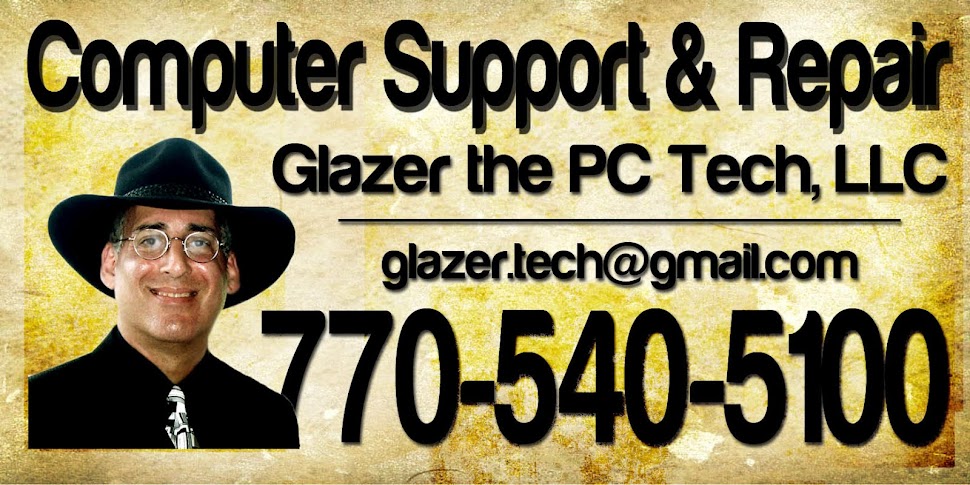
arthur@glazerthepctech.com
More than 10 million computers are discarded in our nation's landfills on an annual basis. As prices for home electronics drop, many consumers prefer to toss their old PCs rather than fix them.
Aging computers fall into a few groups. There are those that would serve only as doorstops and need to be discarded. Then there are those that can be fixed. You can have them repaired and either keep them or give them away. In between are the computers that have salvageable parts.
There are things to consider prior to disposing of your PC in any fashion. First, if it's more than 5 years old or is less than a Pentium 4, it's time to get rid of it. Save the power cord; toss everything else.
Next, why consider spending $800 on a replacement PC when you may not have to. I have looked at many computers that were thought to be dead but in fact were fine after a bit of work. A loose cable, a virus or one bad part could make an otherwise good computer appear worthless.
Should you decide to either pass your computer on to someone else or dispose of it, precautions should be taken to ensure that your personal data is not seen by whoever gets it next. Simply erasing or deleting files or even reformatting the hard drive is not all that secure. The process could be easily undone with an undelete utility.
What you need are programs like Hard Disk Eraser from www.killdisk.com or Eraser from www.heidi.ie/nod/6. Both have free and paid versions. The free programs write zeros all over your data making it unreadable. The better utilities produce more secure results by writing zeros plus random characters many times over, making it impossible to get to the original data. You don't want someone seeing your old financial information, your browsing history or your passwords, do you?
Once the data is secured, the next thing to consider is whether the components in your aging PC are worth salvaging. If the computer is not too old, you may be able to recycle the RAM (memory), the hard drive, power supply and optical (CD/DVD) drives. Remember why you are discarding the PC in the first place and save only what you know works.
A recycled hard drive makes a good second drive in another computer. All you need to do is hook it up. Windows will find it. It's a good place for all that music or photos you have.
The RAM literally pops out after spreading the two clips apart that hold them down. The power supply is held in place by four screws and some cabling. The optical drives and hard drive are attached by two screws on either side with two cables each. Push the optical drives forward and remove them from the front; all else is removed from within.
Remember to ground yourself prior to poking around inside the box. It's not so much for your protection, since the computer will be unplugged. But by grounding yourself, you protect the circuitry from static charges you may transfer to them, rendering them useless.
As far as monitors and printers are concerned, if they don't work, toss them. They have no user-serviceable parts and monitors hold a high charge that could prove dangerous.
If you decide to just give the computer away as is, again there are options. You may consider offering the non-working PCs to local schools for their computer labs. They need specimens to take apart. For working PCs, there is Craig's List or FreeCycle.
If you need to dispose of your computer locally, Hall County runs the Recycling Center at 1008 Chestnut St. in Gainesville. They accept computer equipment 24/7/365. Rick Foote of Hall County Resource Recovery says it is not illegal to dump it at the landfill, but that it isn't necessary because of the Recycling Center. For more details, check out the Web site.
Outside of Hall County, you might check with the municipality to see what their regulations are on disposing computer parts. Not only do old computers take up space, they have dangerous components in their circuitry, so many towns don't allow their disposal. Even if recycling isn't mandatory, it's a good option.
So when you decide it's time to part ways with that old Pentium, you could either fix the glitch, trash the cache or be green with your machine.
Arthur Glazer is a freelance writer and computer technician in Gainesville. His column appears biweekly and on gainesvilletimes.com. Send Arthur your e-mails with computer questions or suggested topics for future columns.

No comments:
Post a Comment
Got a Comment - or a quick question...